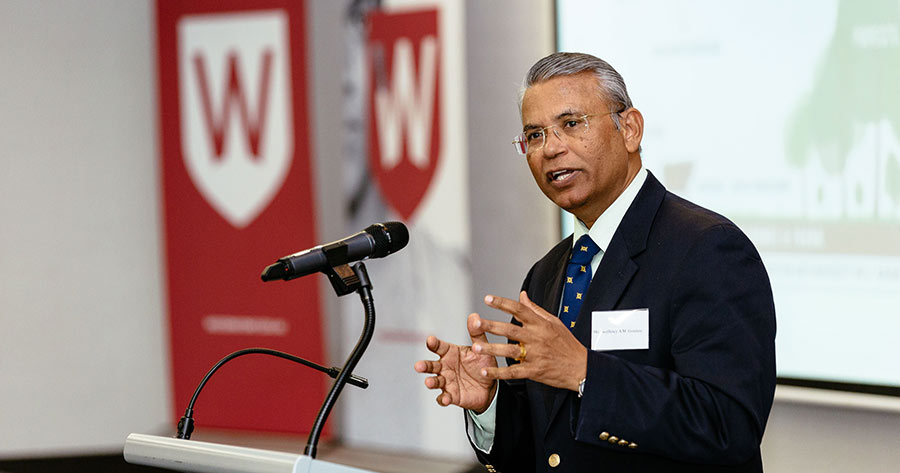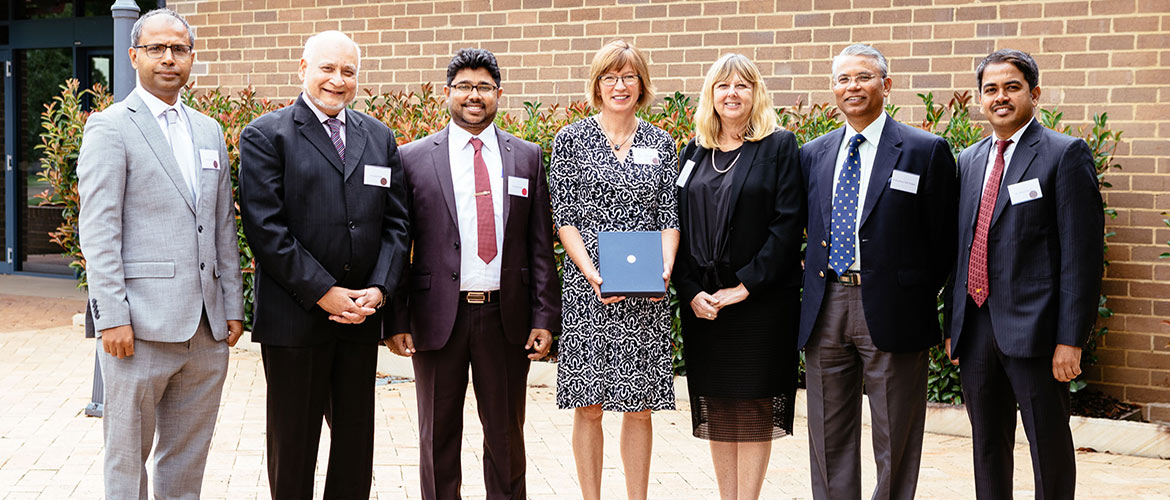Experts from India and Australia meet to propose areas of cooperation in agribusiness

6th March 2018
The High Commissioner of India, His Excellency Dr. A.M. Gondane, led a wide-ranging and thought-provoking set of discussions at the India-Australia Roundtable on Climate Smart Agriculture for Improving Livelihoods Forum held at Western Sydney University's Hawkesbury Institute for the Environment today. This roundtable meeting was built on from activities linked to the Department of Foreign Affairs and Trade funded through the Australia-India Council. The meeting was designed to develop bilateral opportunities in policy and productivity gain for exchanging expertise that would build resilience in agricultural sciences and agribusiness for improving the lives of more than one billion people.
The Forum was opened by Professor Deborah Sweeney, who outlined the enormous opportunities for partnerships between Australian and India.
"India is the fastest growing major economy in the world, recording more than seven per cent growth in 2015-16. The opportunities for educational exchanges and sharing of knowledge in agriculture to strengthen policy and agribusiness cooperation are huge, and this forum aims to further develop ways in which we can draw on expertise in India and Australia for mutual gain", explains Prof Sweeney.
By 2030, India is projected to be the world's third largest economy with the Indian Government promoting an ambitious economic reform agenda. Trade between Australia and India totalled $19.4 billion in 2015-16. India is now Australia’s second largest export market for education services and the second largest source of international students studying here
Director of the Global Centre for Land-Based Innovation, Prof Brajesh Singh, is optimistic about the role that agribusiness plays in fundamentally improving millions of lives, particularly through trade and innovation in digital farming and sustainable agriculture that enables farmers to improve productivity and profitability, and manage information through standard mobile technologies.
"One of the best examples of mutual benefit is the use of native, stingless bees in horticulture. Through the All-India Coordinated research programs, growers in India have very successfully nurtured stingless bees that effectively and efficiently pollinate many fruit and vegetable crops", explains Prof Singh.
"This roundtable meeting will provide potential solutions for two countries for current constraints in agribusiness and trade and identify priorities areas where two countries can begin cooperation now and while keep negotiating more difficult issues for future implementation", says Prof Singh.
The roundtable meeting commenced with an address by His Excellency Dr Gondane on his vision for the Australia-India relationship.
"Australia is an important destination for Indian students. Opportunities to share knowledge and expertise between India and Australia are highly desirable in all fields including agribusiness and trade. I am personally very pleased to note that the two countries are engaging in many areas for a mutually-beneficial relationship”, says Dr Gondane.

L-R: Prof Brajesh Singh, Associate Professor Samsul Huda, Dr Naryan Sakar, Marita Forde (DFAT), Professor Deborah Sweeney, His Excellency Dr A.M. Gondane and Mr. Mohan Ghandi.